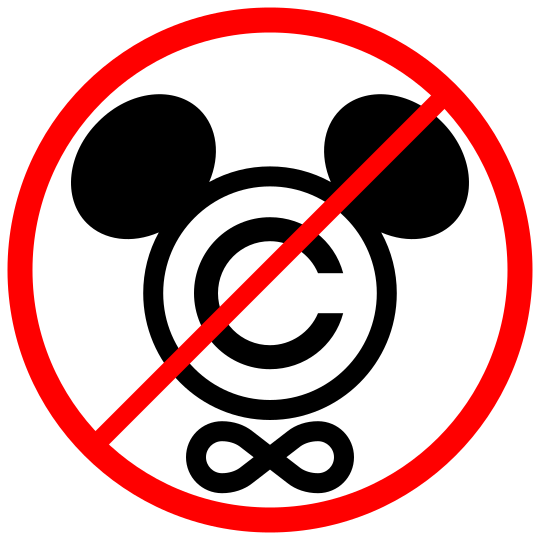How Mickey Mouse Beat The Shit Out Of Thomas Jefferson
Below is an excerpt from a piece posted over on Techdirt by Lloyd Kaufman on the subject of copyright, the public domain and the Founding Fathers. It’s a great post in its own right, but when it gets really interesting (for us) is when he starts talking about animation and how one company in particular seems to have been the driving force behind the various copyright extensions over the years.
It also serves as a nice preamble to an upcoming series of posts here on The Animation Anomaly dealing with the various legal dealings that animators should be aware of.
HOW MICKEY MOUSE BEAT THE SHIT OUT OF THOMAS JEFFERSON
In 1928, Mickey Mouse appeared in the first sound-synchronized cartoon, Steamboat Willie , which was a parody (in Disnenglish, a copyright infringement) of a Buster Keaton film, “Steamboat Bill, Jr.” Mickey Mouse became an instant star and Walt Disney’s meal ticket. By 1956, when “Steamboat Willie” was all set to enter the public domain, Disney had become a powerhouse corporation, and it interceded on little Mickey’s behalf:
Disney Executive: You see, Senator, if “Steamboat Willie” were to belong to the public, they would pretty much own Mickey Mouse, too. And we can’t let that happen.
Senator: No, no. We must protect Mickey.
Disney Executive: What we need, Senator, is an extension of the copyright law. That way, we can keep Mickey safe.
Senator: Yes, yes. We must protect Mickey.
Disney Executive: Yes, Senator, we must protect Mickey.
The Disney executive puts away his hypnotist materials, leaves a pile of cash on the table, and leaves. The hypnotized senator wakes up with the overwhelming urge to protect Mickey Mouse. Days later, copyright law is extended.
Buster Keaton, however, continues to receive food stamps.
This scene is repeated in 1984 and 2003. “Steamboat Willie” will remain the intellectual property of Disney until 2023, almost 100 years after it was created and many, many years after the last person who worked on it became snail food. And at some point before 2023, I’m guessing the copyright laws will be extended once again.
An interesting little twist to this whole story, which was sent to me by steamboat4eva@hotmail.com, is that someone at Disney discovered in the 1990s that “Steamboat Willie” may actually be in the public domain already. This was due to a mistake in the wording of the original copyright. A law student at Arizona State University investigated this claim and agreed [article link for the curious]. Then another law student at Georgetown wrote another paper confirming the claim. At this point, Disney threatened to sue the student and the claim hasn’t been uttered since.
How Mickey Mouse Beat The Shit Out Of Thomas Jefferson Read More »

